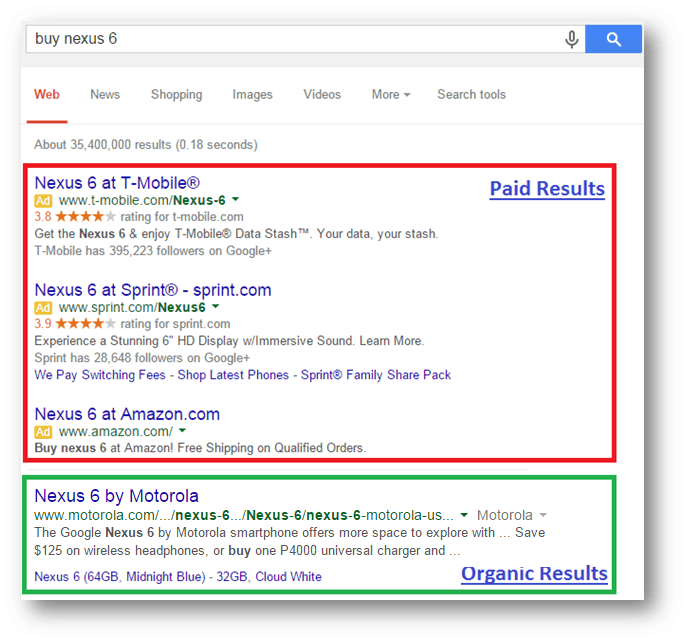Ignoring free organic listings in search engines can be a huge detriment to your local business
Search engines are the highest trafficked sites on the internet. According to Alexa, Google gets more monthly visits than any other website. Yahoo and MSN search (Live, Bing, MSN) are not far behind.
As a business owner with a website, you can tap into the traffic potential of the search engines for free. How do you do it?
Search engines like relevance. Search engines succeed when users type in search queries, get relevant results, and click on pages to find relevant information. The goal of your website is to provide relevant content to those prospects searching for information about your products and services.
There are two ways to do that. For one, you can pay money for your site to show on the top of the search engine results. This is called pay per click (PPC) or online advertising. The other way is called organic or natural listings. The way to get those rankings is through search engine optimization or SEO.

Organic Search Results (SEO) vs. Paid Search Results (PPC)
How to Rank for Organic Search Results
Organic search engine results are generated when you type in specific keywords to the search engines. Each search query outputs organic results to web pages that the search engine deems most relevant to the user’s search queries. These listings are usually below paid listings. Once again, organic listings are free, as long as you provide relevant content for a given search.
Search engine optimization (SEO) is dependent on two major factors. If you can master these two elements, your local business website will rank well organically. They are your website’s on-page and off-page SEO factors:
1) Onsite Optimization
The onsite elements involve things like title tags, meta tags, and items that most business owners usually don’t handle. Programmers and developers work in that realm. However, if you can structure your website with the proper tags and navigation, your site will rank better for relevant terms in your industry.
2) Offsite Optimization
Offsite elements relate to links and citations. Links and citations are online mentions of your local business and the actual links to your local business website. The more relevant links you have pointing to your site, the higher your organic search engine rankings.
Nearly everything you need to know about ranking organically for search engines is available for free online. Blogs like Search Engine Land and Search Engine Watch provide an excellent array of information related to organic rankings. If you have the time to learn it, ranking organically in search engines is a fascinating study and worth the effort.
However, if you’re like most of us, you’re busy with your own business. You should find someone who knows search engines and can help your business rank for key terms. I specialize in organic search engine optimization.
Contact me for a free consultation if you’re interested in SEO.

